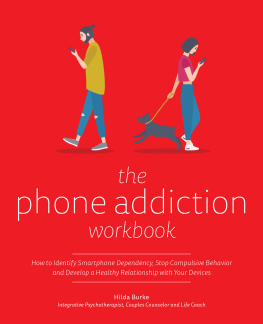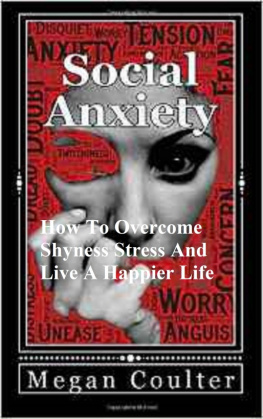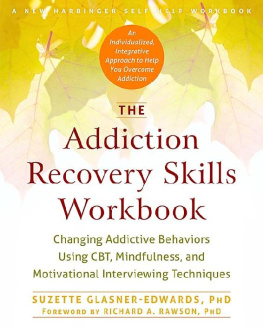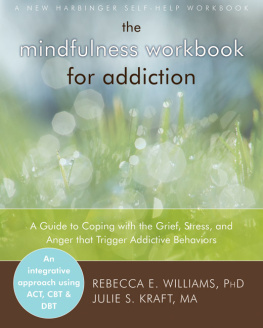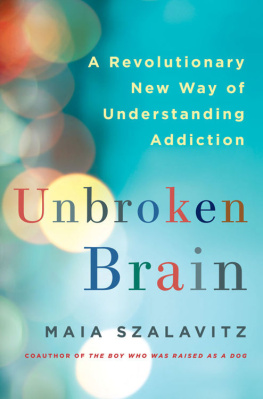
the
phone addiction
workbook
How to Identify Smartphone Dependency, Stop Compulsive Behavior and Develop a Healthy Relationship with Your Devices
Hilda Burke
Text copyright 2019 Hilda Burke. Design and concept copyright 2019 Ulysses Press and its licensors. All rights reserved. Any unauthorized duplication in whole or in part or dissemination of this edition by any means (including but not limited to photocopying, electronic devices, digital versions, and the internet) will be prosecuted to the fullest extent of the law.
Published in the United States by:
Ulysses Press
P.O. Box 3440
Berkeley, CA 94703
www.ulyssespress.com
ISBN: 978-1-61243-903-7
Library of Congress Catalog Number: 2018967982
Printed in Canada by Marquis Book Printing
10 9 8 7 6 5 4 3 2 1
Acquisitions editor: Bridget Thoreson
Managing editor: Claire Chun
Editor: Renee Rutledge
Proofreader: Lauren Harrison
Front cover design: Justin Shirley
Cover art: GoodStudio/shutterstock.com
Interior design: Jake Flaherty
Interior art:
Smartphone Compulsion Test on reprinted with permission from Dr. David Greenfield, The Center for Internet and Technology Addiction
Distributed by Publishers Group West
IMPORTANT NOTE TO READERS: This book has been written and published for informational and educational purposes only. It is not intended to serve as medical advice or to be any form of medical treatment. You should always consult with your physician before altering or changing any aspect of your medical treatment. Do not stop or change any prescription medications without the guidance and advice of your physician. Any use of the information in this book is made on the readers good judgment and is the readers sole responsibility. This book is not intended to diagnose or treat any medical condition and is not a substitute for a physician. This book is independently authored and published and no sponsorship or endorsement of this book by, and no affiliation with, any trademarked brands or other products mentioned within is claimed or suggested. All trademarks that appear in this book belong to their respective owners and are used here for informational purposes only. The author and publisher encourage readers to patronize the quality brands mentioned in this book.
To Madra
Contents
Introduction
There is no new thing under the sun.
Ecclesiastes 1:9
Paddington Station, if youve never passed through it, is a beautiful old station to the west of central London. Built in 1838, it was frequently bombed during World War II. Many troops passed through the station en route to the battlefields of Europe and beyond, and London children were evacuated from here during that same war. Its most famous son is undoubtedly he who bears (pun intended) the stations namePaddington Bear. Four Tube lines pass through it as do many trains journeying west of England and beyond. Being an Irish native, I often take a Paddington train home, connecting to a ferry from Wales to Rosslare, a port on the east coast of Ireland. With a high-speed rail link to Heathrow Airport, Paddington Station also serves as a jumping-off point for many global travelers.
As youd imagine, at such a cosmopolitan confluence point, the people-watching at Paddington is exquisite. Recently, I arrived there with a luxurious 45 minutes to spare ahead of my trains departure. I sat down and looked around and above me, taking in the beautiful vaulted roof, the stately old clock. Fifty years ago it probably didnt look much different. I imagined winding that beautiful clock back several decades and wondered what the people around me would have been doing then. Tourists would have wandered around taking pictures, someone would be checking the horse-racing results in a newspaper, another studiously poring over the stocks and shares. I imagined attractive strangers mingling glances, someone admiring their reflection in a pocket mirror, another surreptitiously biting their nails, a couple arguing.
Bringing my attention back to IRL (in real life) on a summers day well into the twenty-first century, I gazed around at my contemporaries, and most people (old, young, black, white, male, female)lets say at least 80 percent of themwere looking down intently at their phones. However, what they were doing on those devices was likely not dissimilar to what engaged their forebears of half a century ago. Perhaps some of them were even there 50 years ago doing the same thing but in a different way! As it states in Ecclesiastes: The thing that hath been, it is that which shall be; and that which is done is that which shall be done: and there is no new thing under the sun.
Everything we can do on our smartphone, we could do previously in another way offline. But we now have Tinder or Grindr to check out attractive strangers, Instagram to see whos admiring us, a multitude of apps and news sites to update us on how our horse/investment is doing, and WhatsApp to spar or flirt remotely with our partner.
Its interesting how smartphones have been scapegoated for all societys ills when most of the behaviors they enable have been around for millenniamating, narcissism, commerce, envy, lust. The difference now is availability and access. Take mating, or the pursuit of mating, for instance. In a primitive society our potential for partners was limited by geography. Now, with Tinder and its ilk we can set our conquest visions globally.
There has been an enormous pushback on tech corporations of late, and with good reason. They have invested billions in R&D to make their devices and apps stickier, more addictive, so that many of us cannot bear to be without them. However, blaming the tech companies for how we choose to spend our time and lying in wait for them to introduce modifications to render their offerings less attractive detracts from our own responsibility. Two vital weapons make up our arsenal against becoming slaves to our phones: freedom of choice and the ability to change. These two weapons, or defense tactics, form the cornerstones of this book.
Can We Really Become Addicted to Our Phones?
The first step in tackling any issue is admitting it is an issue. This is a huge step because it involves humility and taking responsibility. Congratulations, because youve taken that first step. Even if you havent purchased this book yourself, youve shown enough curiosity to read it to this point. Youve also recognized that you need some help in making changes. Whether or not you find this book useful, possessing those two qualities alone is empowering.
The word addiction is so commonly used these days that its lost some of its gravity. Psychology Today defines addiction as engaging in the use of a substance or in a behavior for which rewarding effects provide incentive to repeatedly pursue the behavior despite detrimental consequences. Of course, there is some ambiguity here. What one person deems detrimental may differ from what another does; in other words, to each their own poison. Most articles focusing on the perils of high smartphone usage inevitably label it addiction, and any methods of coping or managing it are tagged as detox. This mirrors societys polarized, all-or-nothing mentality. However, no matter how much we read or hear regarding what its doing to our brains, bodies, relationships, work, play, communities, kids, and environment, its only when we see the impact a high level of smartphone dependency has on our own lives at a personal level that we feel compelled to do something.
Next page
